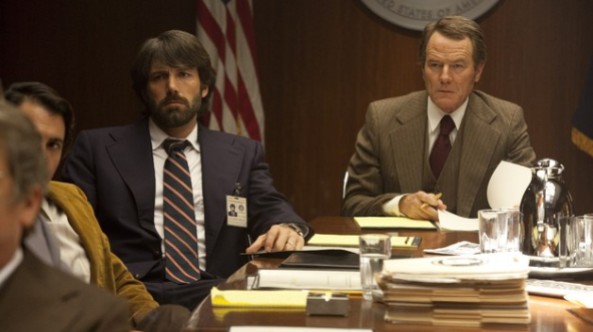
Now that “Argo” has won the Directors Guild prize, it’s time again to ask the question that every Oscar pundit has been asking for the last two weeks: Is “Argo” more like “Apollo 13” or “Driving Miss Daisy?”
Wait, what?
Oscar pundits have one job, and that’s to make sense of the Oscar race, how the Academy thinks and use statistics combined with unscientific intuition to predict who will actually win.
But this year a curious thing happened in that we actually have a race on our hands. The factors that have led up to where we are now, still three weeks away from the Oscars themselves and even days away from the ballots even being mailed out, have been so numerous and unprecedented that no real front runner has ever really been established.
And because of this, analysts have been wrapping themselves into pretzels desperate to find one. Within minutes of the nominations being announced, I could find you tweets of Sasha Stone claiming this was all sewn up for “Lincoln,” no question. Now just two weeks later, the Oscar race is over yet again with a new contender up front, “Argo.”
There’s no doubt that all this praise says something big for “Argo’s” chances. And the fact that it could be either one of four movies to win Best Picture without being nominated for Best Director or one of two to win the PGA, SAG and DGA without winning Best Picture says something else.
But the nuances to these comparisons and statistics have been analyzed to death. There’s first been the suggestion that Ben Affleck getting snubbed is exactly the reason “Argo” is winning all these prizes (nearly impossible, since most voting was done before the fact, not after).
Then there’s the thought that the movie is winning because it’s the most liked movie, a consensus title that angers or polarizes no one (this is more valid, but it’s not always a trend for the Oscars, and probably even less so for the DGA, SAG and PGA).
Then one pundit pointed out the missing piece to the puzzle is that “Braveheart,” the movie that beat “Apollo 13,” was the first movie to send out screeners to Academy voters, and that’s why it pulled off the underdog victory (except this probably oversimplifies that Oscar race in a whole new way, and it only serves to underscore why that assessment is wrong, not whether “Argo” will win or lose).
All of these seem to forget the best tool Oscar pundits have in predicting the race, and that’s charting a narrative. Assuming the ideal in which politics don’t play into the Oscars at all, what is going on inside the movie, not out of it, that will make it a winner?
For “Argo,” it’s that this is a movie that celebrates the movies. The last two winners have done just that, one a biopic with Old Hollywood class, and the other an homage to the silent era. “Argo” is a ‘70s throwback, an example of studio, genre filmmaking at its best, and a story that touts the power of the moving image.
If “Lincoln” wins, it should be because it’s a movie that acts as a historical document AND a timely artistic statement, one that shows a powerful man seen by some in his time as a tyrant but who fought to earn political justice and equality.
For that matter, every movie in the nine Best Picture nominees carries with it some narrative that if sold correctly could result in a victory. It’s a far stretch to presume that “Beasts of the Southern Wild” could actually win, but I don’t like dealing in absolutes like so many other pundits have week after week.
If Oscar pundits have been looking for SOMETHING to talk about during this midseason lull, it’s because my talk of narratives is already ground well tread. But here’s the claim I’ll stake at least once more: in a bizarre year where so many movies have already broken records and Oscar precedent, isn’t the least likely of outcomes really the most likely? And isn’t saying what won’t happen ruining the fun a bit?
1 thought on “'Argo' and the pretzel logic of Oscar pundits”